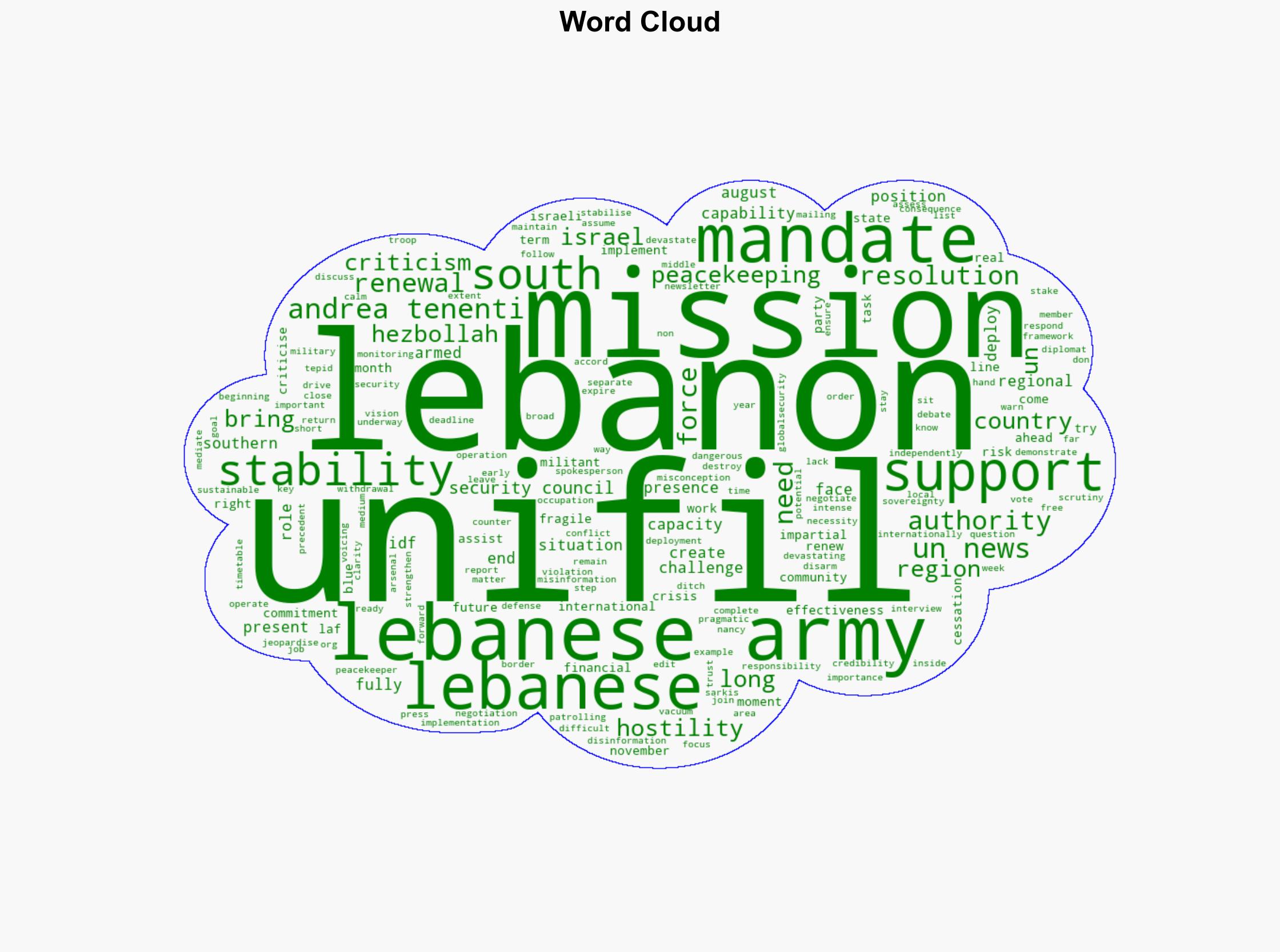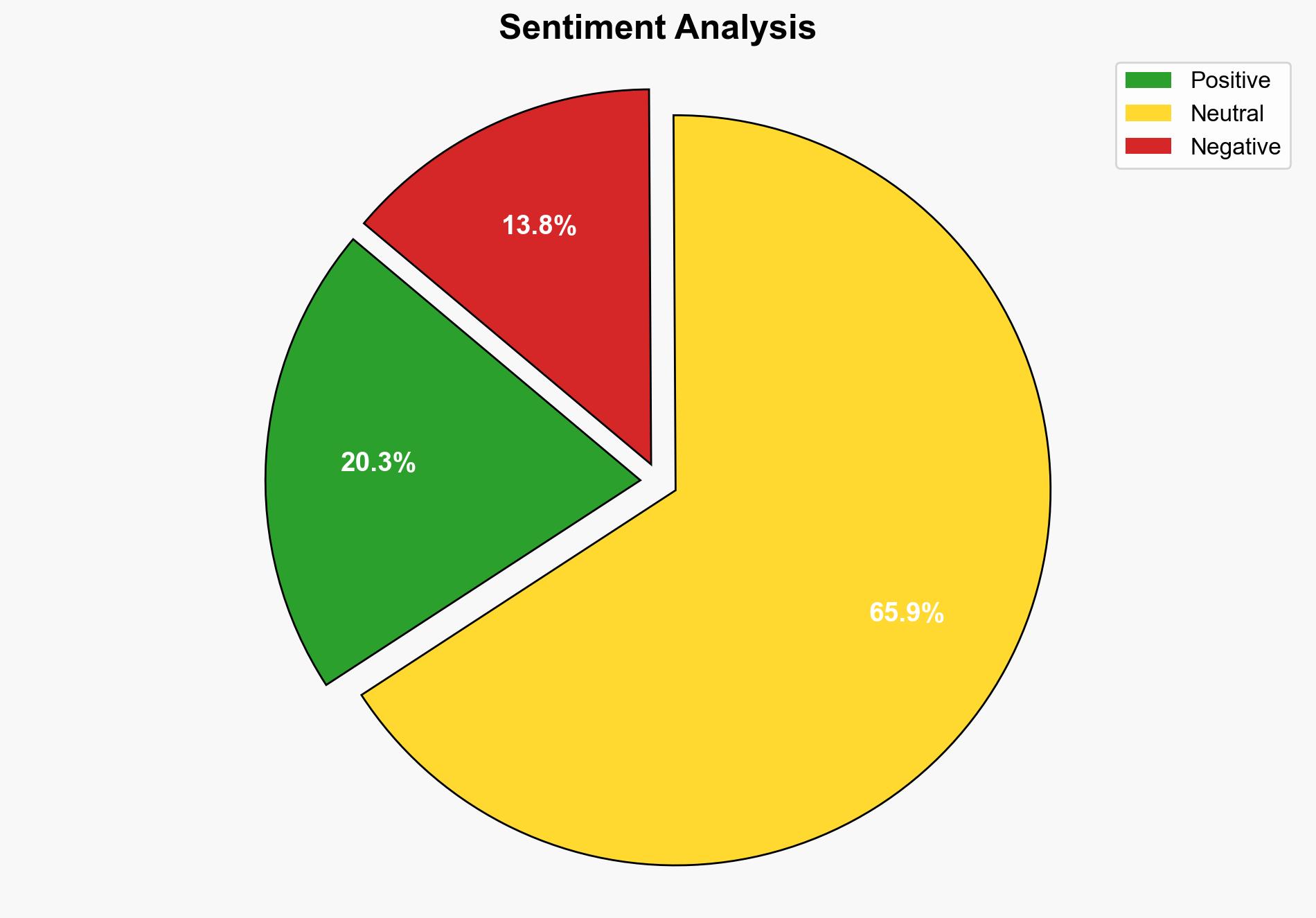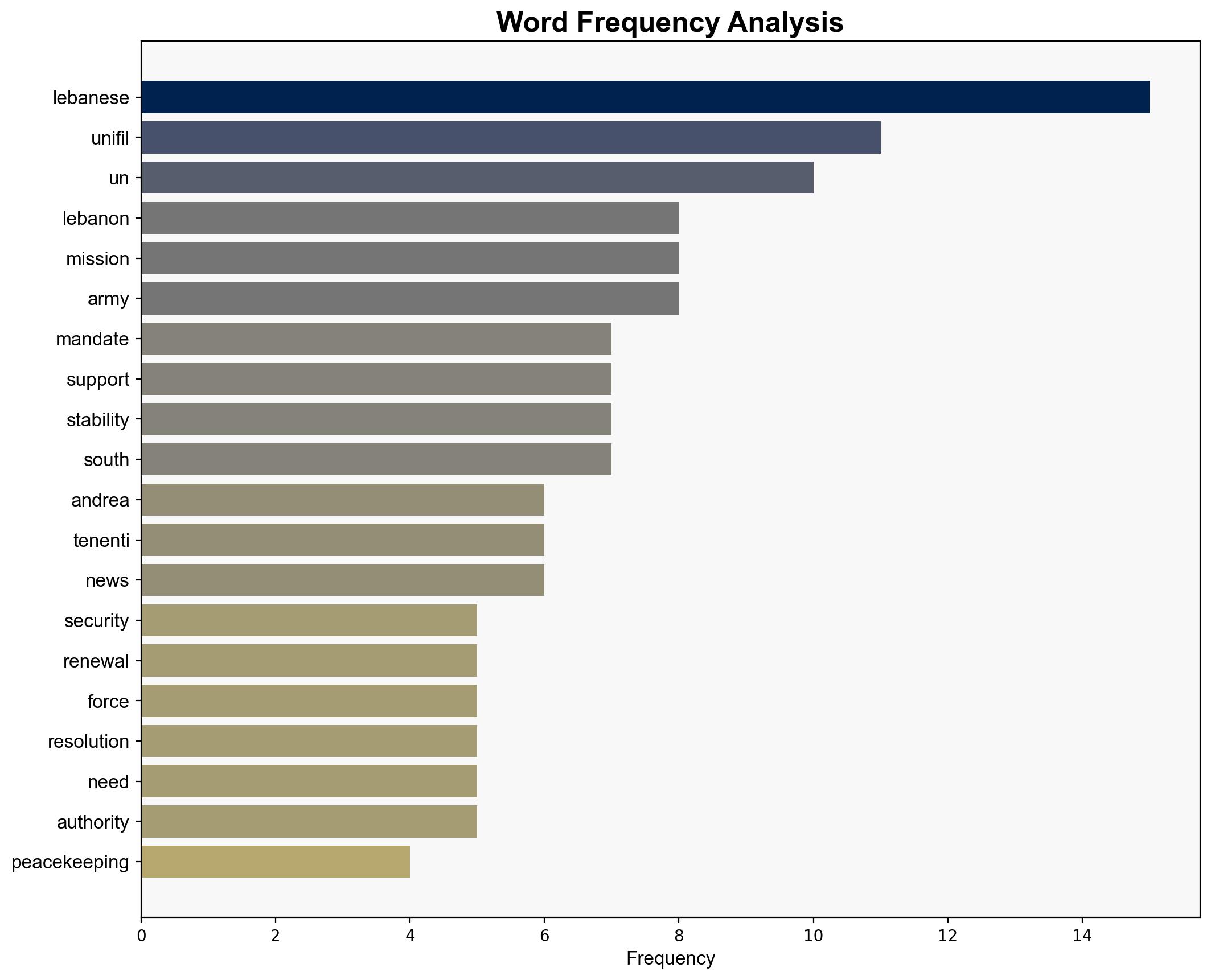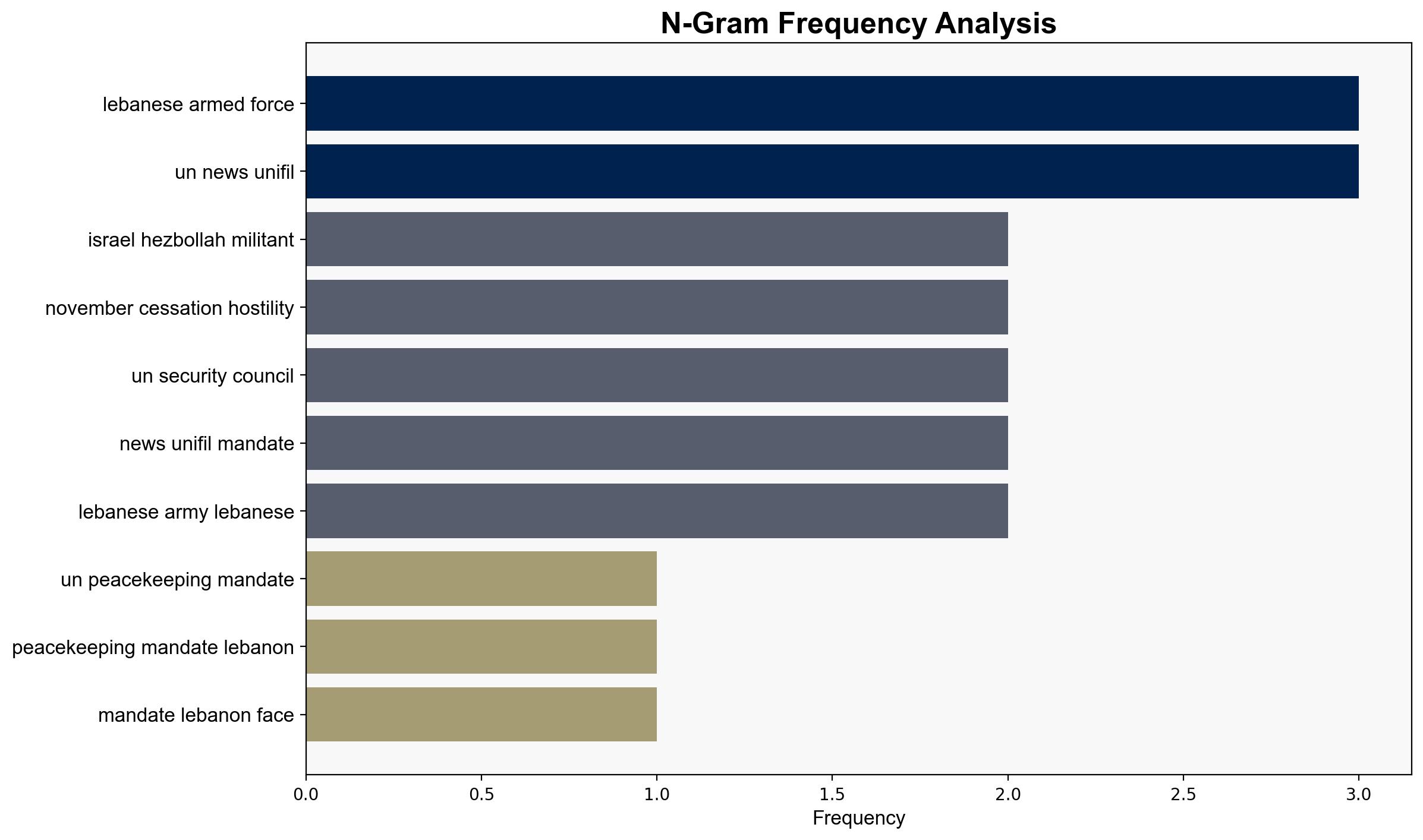UN peacekeeping mandate in Lebanon faces scrutiny ahead of Security Council vote – Globalsecurity.org
Published on: 2025-08-28
Intelligence Report: UN peacekeeping mandate in Lebanon faces scrutiny ahead of Security Council vote – Globalsecurity.org
1. BLUF (Bottom Line Up Front)
The most supported hypothesis is that the UNIFIL mandate will be renewed, albeit with potential modifications to address criticisms and enhance effectiveness. Confidence level: Moderate. It is recommended that diplomatic efforts focus on reinforcing UNIFIL’s role while addressing both Lebanese and Israeli concerns to maintain regional stability.
2. Competing Hypotheses
1. **Hypothesis A**: The UNIFIL mandate will be renewed with modifications to address criticisms and improve operational effectiveness.
– **Supporting Evidence**: Diplomatic negotiations are ongoing, and there is acknowledgment of UNIFIL’s role in maintaining stability. The need for international peacekeeping is emphasized due to the fragile situation.
2. **Hypothesis B**: The UNIFIL mandate will not be renewed, leading to increased instability along the Lebanon-Israel border.
– **Supporting Evidence**: Criticisms from both Lebanon and Israel, coupled with financial and operational challenges faced by the Lebanese Armed Forces, suggest potential withdrawal or significant downsizing.
Using ACH 2.0, Hypothesis A is better supported due to the international community’s vested interest in regional stability and ongoing diplomatic efforts to negotiate mandate terms.
3. Key Assumptions and Red Flags
– **Assumptions**: It is assumed that both Lebanon and Israel are willing to engage in diplomatic solutions. The capability of the Lebanese Armed Forces to assume greater responsibility is also assumed.
– **Red Flags**: Potential bias in underestimating Hezbollah’s influence and overestimating Lebanese Armed Forces’ readiness. Criticisms may be driven by misinformation or political agendas.
– **Blind Spots**: The full extent of Hezbollah’s arsenal and intentions remains unclear, as does the potential for unilateral actions by Israel or Hezbollah.
4. Implications and Strategic Risks
– **Regional Stability**: Non-renewal could lead to a security vacuum, increasing the risk of conflict escalation.
– **Geopolitical Tensions**: Failure to renew could embolden Hezbollah and strain Lebanon-Israel relations, impacting broader Middle Eastern dynamics.
– **Economic Impact**: Instability could further exacerbate Lebanon’s economic crisis, affecting regional trade and investment.
5. Recommendations and Outlook
- **Mitigation**: Strengthen diplomatic channels to ensure mandate renewal with necessary adjustments. Engage with local stakeholders to address criticisms.
- **Opportunities**: Use the mandate renewal as leverage to push for broader peace initiatives in the region.
- **Scenario Projections**:
– **Best Case**: Mandate renewed with enhanced capabilities, leading to improved stability.
– **Worst Case**: Mandate lapses, resulting in increased hostilities and regional destabilization.
– **Most Likely**: Mandate renewed with minor adjustments, maintaining current stability levels.
6. Key Individuals and Entities
– Andrea Tenenti (UNIFIL spokesperson)
– Nancy Sarkis (UN News interviewer)
7. Thematic Tags
national security threats, regional stability, peacekeeping operations, Lebanon-Israel relations





